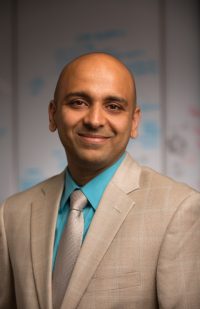Design for Security: The Hardware-Up Principle

Speaker: Prof. Simha Sethumadhavan
Affiliation: Columbia University
PLEASE NOTE NEW LOCATION FOR THIS DATE ONLY!
Abstract: In this talk, I will describe a new design principle for security: the hardware-up principle. Hardware-up security means that systems should be secured starting from hardware instead of the existing popular approach where software layers are secured, assuming that the lower layers are secure when they are not. I will discuss how systems designed for security from hardware-up offer unique advantages unavailable in current protection systems: a smaller attack surface, energy-efficient execution, and the ability to reason about security compositionally. I will illustrate hardware-up benefits through case studies. For the first hardware-up case study, I will discuss how we can prevent attackers from taking advantage of unintentional hardware design flaws. Taking microarchitectural side channels as an example, I will discuss a new methodology that computer architects can use to reason micro architectural side-channels at processor design time. Attackers can also intentionally weaken hardware to break systems. In the second case study, I will discuss how hardware itself can be created in a manner that provides assurance that its security has not been compromised due to design-time backdoors. I will describe the first static analysis tool for detecting hardware backdoors and our technique for silencing backdoors. I will mention a prototype built using our technique that incurs less than 8% area overhead and negligible performance overheads. Finally, time permitting, I will describe a hardware malware detector, a first of its kind, that is vastly simpler to implement compared to a traditional software malware detector.
Biography: Simha Sethumadhavan is an Associate Professor of Computer Science at Columbia University and Founder of Chip Scan Inc., a hardware security company. Simha’s research interests are in computer architecture and computer security. He has been recognized with an Alfred P Sloan Fellowship (2013), NSF CAREER award (2011), two IEEE Micro “top pick” awards (2004, 2013), a student best paper award at CCS (2013), and a distinguished paper award at ICPC (2016), and a graduate teaching award (2006). He has served on the Federal Communications Commission’s “Downloadable Security Technical Advisory Committee” as a Special Government Employee to advise the commission. He obtained his PhD from UT Austin in 2007.
For more information contact Professors Suhas Diggavi & Mani Srivastava
Date/Time:
Date(s) - Oct 24, 2016
12:30 pm - 1:30 pm
Location:
MAE Seminar Room #38-138
420 Westwood Plaza -EE IV - #38-138, Los Angeles CA 90095
